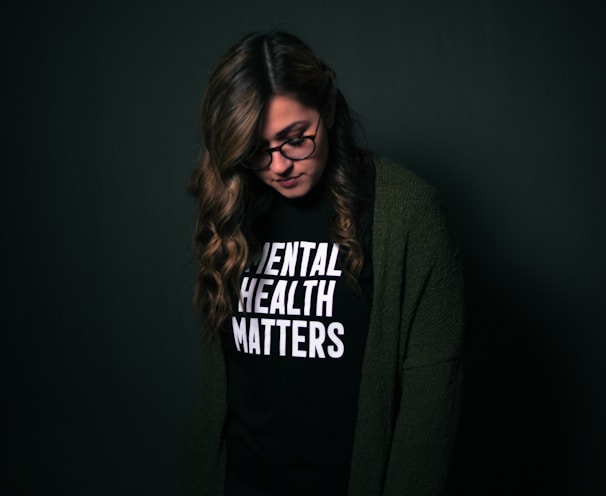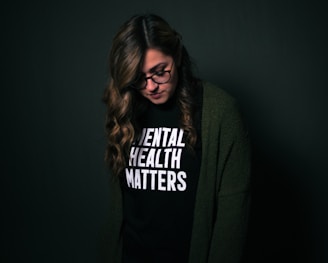What is a Mental Health Coach?
WHAT IS A MENTAL HEALTH COACH?
Coaches help clients develop a healthy balance in life, give guidance in decision-making, offer support in navigating mental health difficulties, and assist in establishing a recovery plan. Coaches help clients find ways to obtain and maintain stability, manage difficult symptoms, rebuild relationships, and find a purpose for living. Coaches also help clients find resources for professional care and treatment, family support, and education.
WHAT IS THE ROLE OF A MENTAL HEALTH COACH?
Mental health coaches are unlike licensed mental health care providers in that coaches do not diagnose or offer professional care or treatment for mental health difficulties and disorders. Coaches support any positive change, helping persons in professional care to manage symptoms, build support for recovery, and work on life goals such as relationships, work, and education. Mental health coaching is action-oriented with an emphasis on improving one’s present life and reaching goals for the future. Mental health coaching emphasizes honoring values and making principle-based decisions, creating a clear plan of action, and using current strengths to reach future goals. The coach provides accountability to help the client stay on track.


“Where no wise guidance is, the people fall, but in the multitude of counselors there is safety.”
– Proverbs 11:14
According to the CDC – mental health issues are skyrocketing, 40% of U.S. adults now report struggling with mental health or substance abuse issues. The numbers are staggering.
Anxiety/ Depression Symptoms – 31%
Started or Increased Substance Use – 13%
Trauma/Stressor-Related Disorder Symptoms – 26%
Seriously Considered Suicide – 11%
People everywhere are exhausted, emotionally shot, and in need of hope!
Sometimes despite our best efforts, we are still overwhelmed. At such times we need someone to reflect our Savior in the trenches of our inner battles and interpersonal struggles. Mental Health Coaches walk with you every step of the way as you seek spiritual and emotional wholeness.
Helping women arise out of darkness and into the light where they can thrive and maintain stability for a healthy balance in life and relationships. Learn to manage difficult symptoms, and navigate through mental health difficulties with assistance in recovery, solution-focused, faith-based therapy, and purposeful living. Part of the DARE TO CARE mission is to help eradicate the silence, shame, and stigma around mental health issues and serve as a spiritual bridge between the local church and community through concern that evokes compassion and manifests in care. We use different approaches to restore relationships between the individual and God, self and community, and work with individuals on spiritual and emotional issues to provide comfort and compassion, and encourage holistic well-being.
Programs are Faith-Based and include:
one-in-one spiritual counseling and strengths-based support to assist individuals in gaining victory over abusive, addictive, and damaging thoughts or behaviors, while also building a closer walk with Jesus.
Spiritual Enrichment Groups
Referral Services for Members


Frequently Asked Questions
Please contact us if you are unable to find an answer to your question.
Payments: Christian Mental Health Coaching is available probono. Availability is limited and coaching sessions are short term.
Christian Mental Health Coaching Is Not Therapy. Therapists are trained healthcare professionals who help people work through past trauma and issues that are holding them back from leading a fulfilling life. In contrast, coaching is forward focused to help people navigate challenges, maximize opportunities, and achieve personal and professional fulfillment as they become the better version of themself. I am certified as Mental Health Coach First Responder and Pastoral Counselor. No one knows what will happen tomorrow. At any given time, we can be affected by a personal or global crisis, or loss. And it can trigger and affect each individual differently. As a Minister and Certified Life Coach specializing in Mental Health and Christian Counseling, I understand the importance of being able to help support even the traumas of ones life and have received specialized mental health training to provide ethical and competent mental health coaching services from a Christian perspective. I also hold the Board Certified Christian Mental Health Coach Credential (BCCMHC) through the International Board of Christian Care. 3 John 1:2 If professional counseling is needed, I will refer the client to receive care and counsel from a licensed professional. To help bridge the gap between faith and mental health, I offer weekly virtual studies that target areas related to mental health. You are more than welcome to join. Also, I recommend being a part of Celebrate Recovery. Celebrate Recovery is a biblical and balanced program that helps us overcome our hurts, hang-ups, and habits. Find your local CR group here.
Due to the nature of this form of service, it is only done virtually or in a local church.
How Do I know If I need Coaching or Counseling?
Coaching sessions focus on the present and future, whereas therapy sessions typically focus on healing from the past. "Coaches are present-focused with a future consciousness. Coaches keep their clients focused on the present as much as possible and provide sessions to move clients toward their goals.
Therapists, on the other hand, focus on the past and on mental health. There's typically a diagnosis given to the client, and there is a treatment plan that is used. Clients are allowed to look at what is going on emotionally, psychologically, and interpersonally. Therapists also provide a uniquely safe space for clients to dive into all aspects of their mental health because of the legal regulations around the profession. Therapy sessions are generally more open-ended, whereas coaching sessions are more focused.
Sessions with a therapist are typically one hour per week and usually start open-ended, allowing the client to share their topic. There is not always a clarified "goal" for the session. Sessions with a coach are also usually one hour each week and sometimes start open-ended but will usually narrow toward a specific topic, as there is usually a specific goal to work toward.
Most coaches will also offer their services for a specific niche. Most therapists practice a wide spectrum of therapies to address various mental health issues, though some do practice within a niche or utilize a specific therapy.
Coaching is usually short term, while therapy is usually long term.
Working with a coach is usually a short-term engagement that can range from one month to one year. The main function of a coach is to provide tools for a client to move from one state of being to the next, making progress toward their goal. Because coaching is set up for clients to make progress, it is important to work against specific timelines and milestones so the client doesn't remain stuck in old habits or behind recurring obstacles. By the end of your coaching sessions, you will likely have made progress toward your clarified goal.
Engaging with therapy, on the other hand, is often a long-term engagement with no specified end date. That's because therapy is a practice that seeks to uncover root causes for your distress. This can take a while to work through, but in the hands of a professional therapist, the work you put in will be worth it.
Coaching and therapy have different types of goals.
Since sessions with a coach are usually a short-term engagement, there will be a clarified goal to work toward. Goals in coaching are usually based on action and solutions.
Most coaching practices are built on a framework that the coach has developed over time with various clients. Results using their coaching framework can be replicated for many clients.
Goals when working with a therapist include emotional processing, depression management, anxiety management, and how to handle grief. These goals are not always action-oriented. Sometimes exploring past experiences to find a root cause is necessary during a session, which may result in no specific actionable takeaway in that particular session. If you're working with a psychiatrist, medications can also be prescribed to manage mental health issues.
By the end of your therapy sessions, you will likely have a better understanding of your emotions, triggers, boundaries, and mental health.
How to know which one is right for you.
Here are a few questions to ask yourself when deciding if a therapist or coach is right for you:
What appears to be the issue that you want to work on?
Ask yourself the 5 Whys focused on this issue: Why is this issue important, etc.
Do you have insurance coverage that will cover therapy services?
Do you have a wellness stipend or education reimbursement that might cover coaching services?
Are you willing to pay out of pocket for therapy? If so, how much?
Are you willing to pay out of pocket for coaching? If so, how much?
Note: Some people find benefit in having both a therapist and a coach at the same time, so this doesn't always have to be an either-or situation!
Once you've found a few interesting prospects for your coach or therapist, reach out to each of them to schedule a short call to figure out if there is a good match between you and the coach or therapist. Most practitioners will offer a free discovery call to assess if there's a fit. It is important to find a good match to ensure that the professional you choose to work with is best equipped to help you according to your personality and personal needs.
When to see a therapist. According to Melendres, you should consider seeing a therapist for issues like:
A mental health concern that is causing distress in your life.
Support navigating difficult emotions
Healing from past hurts or trauma
Struggling with your relationships
Learning strategies to cope with certain triggers
Overcoming deep-rooted issues from your past
When to see a coach. According to Gozo, a person is ready to work with a coach when you:
Can clearly identify a goal but need a coaching professional to lay out options of how to go about working toward your goal
May have a hazy goal you're committing to clarify
"My advice for anyone seeking a life coach is to seek out a coach that specializes in helping others achieve goals similar to yours,"(GOZO)
Can a therapist act as a life coach? Both involve a co-collaborative relationship between client and professional, being results-oriented, establishing a safe space, proper validation, etc., "but each industry carries its own code of ethics, core competencies, do's and don'ts." From an ethical standpoint, it is the professional's responsibility to:
Be properly trained/certified/credentialed
Thoroughly educate potential clients on what they offer
Allow you to choose which service you want
Unwaveringly maintain the integrity of the chosen professional relationship
The bottom line. Both coaching and therapy are tools for self-development. They provide great opportunities to have a professional guide you through the most challenging obstacles in your life. Depending on what you want to focus on, you can engage in either service one at a time or both at the same time if you have the means.
In your search, keep in mind the accreditation that you care about, the kind of sessions you want to participate in, and the goals you want to achieve. If you're still debating whether or not to engage in either service, jump in anywhere and allow yourself to explore options with an exploratory call with each professional you're interested in working with
Article written by : Stephanie Catahan
Stephanie Catahan is a health coach, community leader, and writer. With a psychology degree from University of California, Berkeley and trained at Duke Integrative Medicine, she applies a holistic lens to wellness and works with clients on their mindsets to prevent burnout. As a community leader, her work is intersectional, guiding clients through the many layers of their life’s context to reach their own version of ultimate well-being.

